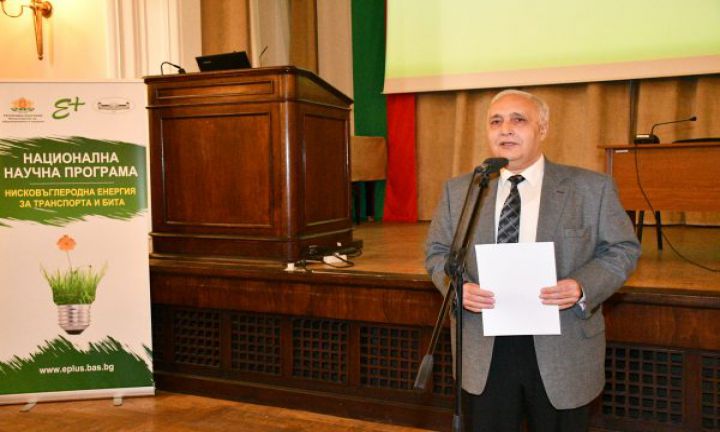II Open Meeting of the National Science Program EPLUS

-
Subtitle:
-
Location:
Sofia
-
Date:
12/02/2019
Scientific achievements with potential for practical application, which were realized in the first year of implementation of the National Scientific Program "Low Carbon Energy for Transport and Doemstic Use (EPLUS) were presented today at the Bulgarian Academy of Sciences. The scientists from BAS and the partner organizations presented the achievements in the three components of the program - Storage and transformation of renewable energy; Electric Vehicles and Hydrogen Mobility; and New Efficient Materials and Processes for Carbon Capture and Recovery.
The forum was opened by the Vice-President of the Bulgarian Academy of Sciences and the Coordinator of the EPLUS Program Prof. Konstantin Hadjiivanov. There is a good synchronization between the scientific results and the demonstration part of the program, said the advisor of the Minister of Education and Science Prof. Ivan Dimov.
Prof. Velizara Pencheva from Angel Kanchev University of Rousse delivered a lecture on "Contemporary Challenges to Urban Transport Systems and Sustainable Mobility". Last year alone, travel time within Sofia increased by an average of 35%, Prof. Pencheva announced, ranking 52nd out of 403 countries in the world. Scientists are looking for a solution to ease traffic and generate electricity in a fuel cell.
Within the first year of the EPLUS program, a demo trolley project was developed with a hybrid battery cell extension fuel cell. The trolleybus will be able to move not only through power from the mains, but also to make 100 km by hydrogen. The innovation is being developed for the first time by Bulgarian scientists, said Professor Daria Vladikova of the Institute of Electrochemistry and Energy Systems.
Under the EPLUS program, a river vessel powered by hydrogen and solar energy is also being developed. Scientists are testing a technological scheme to eliminate major pollutants from wastewater streams for the semi-industrial production of microalgae. Among the scientific achievements are a positive electrode for a new structure lithium-ion battery; porous adsorbents for carbon dioxide capture; photosynthetic biofuel elements using higher aquatic plants.

 Български
Български English
English